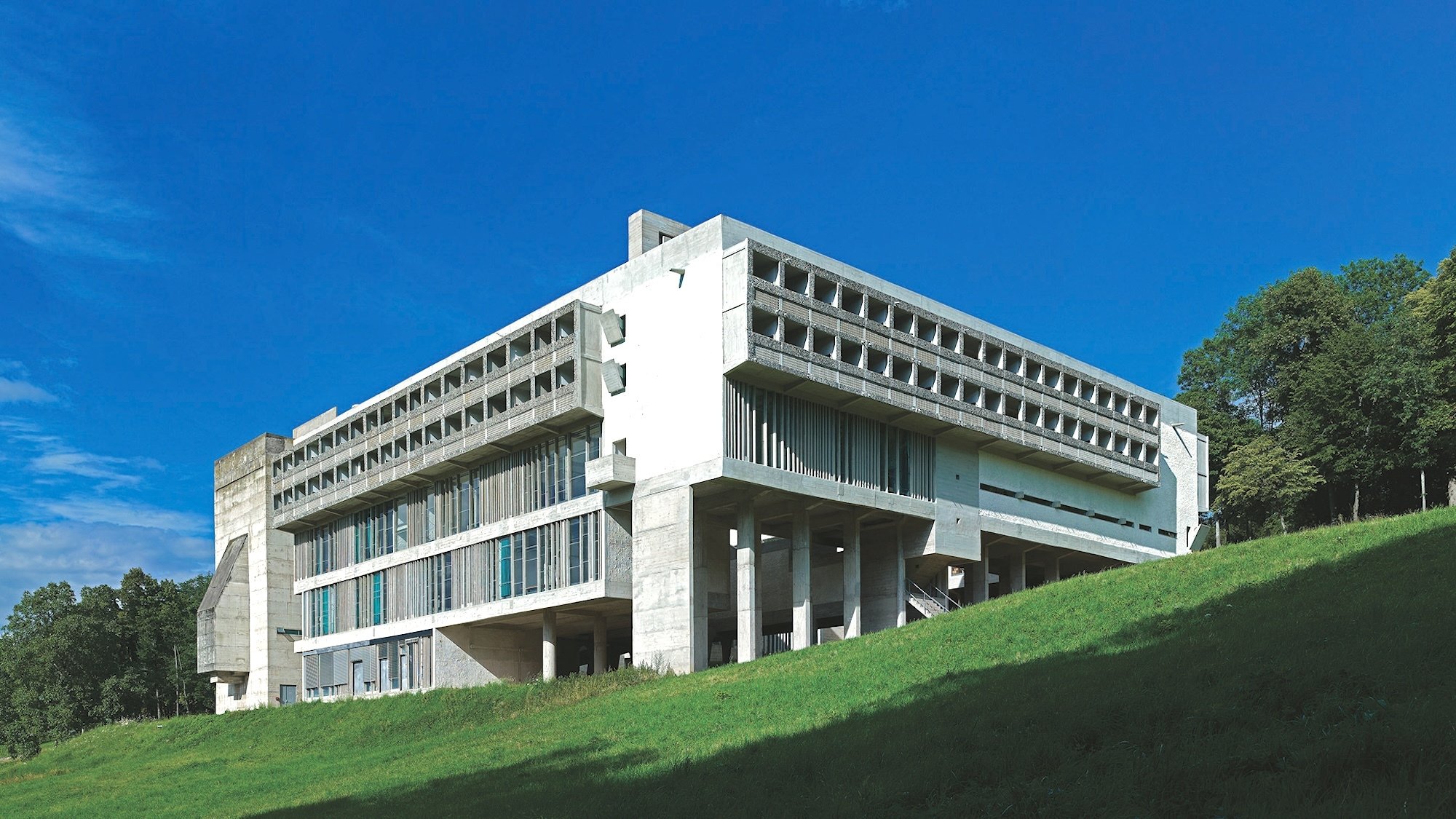25 kilometers from Lyon, a strange concrete building stands out against the rolling landscape: welcome to the Couvent de La Tourette. Built between 1953 and 1960 by the visionary architect Le Corbusier, this place was originally intended for religious and academic purposes: to train Dominicans in the subtleties of theology and ancient languages. Today, the spiritual activity still persists, but it is mainly its architectural power that draws visitors from all over the world.
An architectural UFO in the Lyon countryside
Nine Dominican brothers still reside here, quietly living alongside curious visitors who come for a guided tour... or an overnight stay in search of silence. Brother Pascal David, the sub-prior of the convent for 15 years, knows every nook and cranny of the building. He loves to share the philosophy behind this masterpiece: “L...Le Corbusier said that the convent is experienced from the inside. From the outside, it may seem rough and austere. But on the inside, it's a play of light, openings, and landscapes framed like living pictures. »
See this post on Instagram
One of the jewels of the place is undoubtedly the refectory, bathed in soft light and framed by openings inspired… by a musical score. The vertical concrete bars? Black notes, white notes, eighth notes translated into architectural language. The squares of béton ? Windows onto nature, each one different depending on where you sit. Here, a meal turns into contemplation.
See this post on Instagram
A must-visit site, listed as a World Heritage site
In contrast to the rest of the convent, the church impresses with its monumental presence. Heavy, grounded in the earth, with its solid walls and dark volumes, it...the section stands out sharply from the rest of the building, feeling much lighter. “There’s a real break intended by Le Corbusier, a nod to Romanesque architecture, stripped down, almost defensive,” clarifies Brother Pascal.
See this post on Instagram
For architecture enthusiasts or simply the curious, the Couvent de La Tourette is a must-visit. Listed as a World Heritage site along with 16 other works by Le Corbusier, it is best experienced through a guided tour (daily in .êté), where every detail makes perfect sense. A monument that isn't just meant to be seen: it’s meant to be experienced.
Source : Le Progrès
